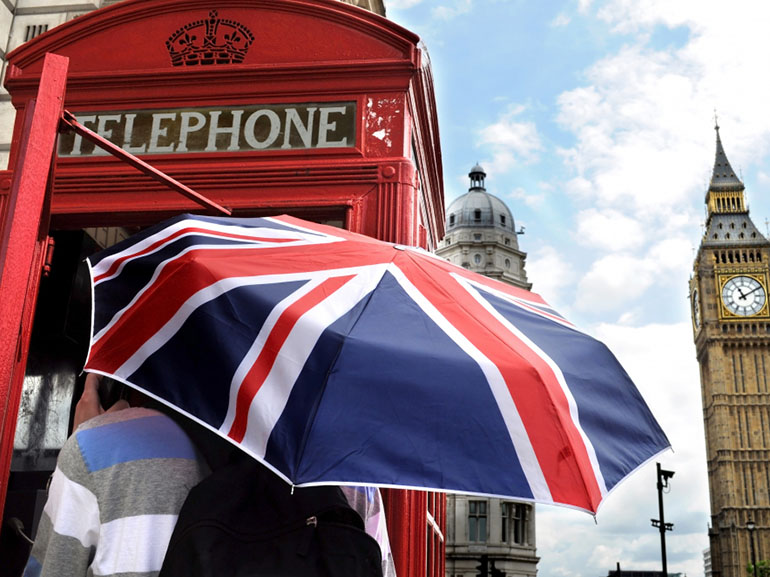BOE Explained: What It Is & Why the Bank of England Decision Is Important
Given England’s economic strength and its position as the world’s sixth-largest economy (as of 2025), traders, consumers, and analysts alike closely follow the monetary policies set by its central bank, the Bank of England.
Let’s take a closer look at the BOE and why it plays such a crucial role:

TL;DR
BOE = UK’s central bank, established in 1694
Nicknamed "The Old Lady of Threadneedle Street"
Key roles: monetary policy, currency issuance, financial stability, government banking
Governed by a Governor, 4 Deputy Governors, a Court of Directors, and the Monetary Policy Committee (MPC)
MPC sets interest rates to control inflation near the 2% target
BOE decisions influence mortgages, savings, inflation, and global markets
2025 features eight scheduled policy meetings, with summaries and reports published
What Is the BOE?
The Bank of England (BOE) is the central bank of the United Kingdom. Commonly referred to as "The Old Lady of Threadneedle Street" because of its historic London address, the BOE plays a vital role in shaping the UK’s monetary policy, issuing currency, maintaining financial system stability, and acting as the government’s banker. Its core objective is to promote monetary and economic stability for the UK’s citizens.
BOE Formation and Members
Formation
Established in 1694 to act as the government’s banker and help finance war efforts, the Bank of England (BOE) is the second-oldest central bank in the world. Originally a privately owned institution, it was nationalised in 1946 and is now wholly owned by the UK government through the Treasury Solicitor. From its inception, the BOE was founded to serve the public good and advance the welfare of the people of the United Kingdom.
Members and Governance
Governor:
The BOE is led by a Governor, Andrew Bailey, who the Exchequer Chancellor appoints with the Prime Minister's approval.
Deputy Governors: There are four Deputy Governors, each overseeing a key area: monetary policy, financial stability, markets and banking, and prudential regulation.
Court of Directors: A Court of Directors governs the Bank. It is typically composed of five executive members and up to nine non-executive members, all appointed by the Crown. One of the non-executive members chosen by the Chancellor chairs the Court. The Governor serves an eight-year term, Deputy Governors serve for five years, and non-executive members may serve terms of up to four years.
Monetary Policy Committee (MPC): The MPC is a nine-member committee responsible for setting core monetary policy, including the Bank Rate. Chaired by the Governor, the committee includes three Deputy Governors, the Chief Economist, and four external members appointed by the Chancellor of the Exchequer.
Why the Bank of England’s Decisions Matter
The BOE’s actions have wide-ranging effects on the UK economy and international financial markets. Key responsibilities include:
Bank of England Interest Rate Decision: Through the MPC, the Bank sets the official interest rate to help control inflation, aiming to keep it close to the government's 2% target rate for inflation. Interest rate decisions directly affect borrowing costs, mortgage rates, loan repayments, and savings returns, influencing economic spending and investment. (Source: BBC)
Inflation Control: By adjusting interest rates and employing other monetary tools, the BOE keeps inflation in check, supporting price stability, economic health, and consumer confidence.
Financial Stability: The Bank plays a vital role in safeguarding the UK’s financial system. It identifies potential risks, monitors systemic vulnerabilities, and can act as a lender of last resort to prevent or contain financial crises, ensuring trust in the banking system and economic resilience.
Global Policy Signalling: BOE decisions are closely followed by investors, analysts, and policymakers around the world. Its guidance often influences global borrowing costs, currency markets, and investor sentiment regarding the UK economy.
Bank of England Meeting Calendar (2025)
The BOE's Monetary Policy Committee (MPC) holds eight policy meetings each year. At each meeting, the MPC reviews economic data, decides on interest rates, and updates its economic outlook.
Upcoming 2025 MPC Meeting Dates:
Thursday, 7 August – Summary, minutes, and report
Thursday, 18 September – Summary and minutes
Thursday, 6 November – Summary, minutes, and report
Thursday, 18 December – Summary and minutes
Conclusion
The Bank of England is foundational in maintaining the UK’s economic health and financial stability. From setting interest rates to managing inflation and safeguarding the banking system, its policies ripple across households, businesses, and global markets. Understanding the BOE’s structure, responsibilities, and meeting calendar is essential for anyone tracking the direction of the UK economy or making informed financial decisions.
FAQs
What does the Bank of England do?
It manages monetary policy, issues currency, maintains financial stability, and acts as the UK government’s banker.
Who leads the Bank of England?
The BOE is led by Governor Andrew Bailey, supported by four Deputy Governors and a Court of Directors.
What is the Monetary Policy Committee (MPC)?
The MPC is a nine-member panel that sets the Bank Rate and other key monetary decisions to control inflation and guide the economy.
How often does the BOE meet in 2025?
The MPC is scheduled to meet eight times in 2025.
Why should I care about BOE decisions?
BOE policies affect interest rates, inflation, savings, borrowing, and investment conditions in the UK and beyond.





